The Joy Is Not Optional
The Growing Kids God's Way protocol
I grew up under a strict childrearing program called Growing Kids God’s Way, created by Gary Ezzo. It was popular in the 90’s, and had a series of books that kept getting released with tamer and tamer editions as people kept getting mad about it. My parents had one of the earliest ones.
For the first half of my life, my only real friends were children who were also raised in GKGW. I was homeschooled along with a set of families who all also followed the program. The moms would have weekly meetups where they would go through the workbooks as the kids played. This insularity was important - a big part of GKGW was making sure your kids didn’t have exposure to corrupting influences.
I went many years without ever witnessing a child being whiny or upset at an adult, besides occasional shocking instances of seeing stranger children throw tantrums in grocery stores. We weren’t allowed to watch media which depicted children being dissatisfied with adults, so this meant no Land Before Time or Arthur or Wild Thornberries or Rugrats, which I hear all featured at least one ‘bratty’ character. We watched some morally inoffensive modern shows like Spongebob, but also a lot of shows from the 50’s and 60’s, the ‘ideal’ era. I grew up on I Love Lucy, Gilligan’s Island, Looney Tunes, I Dream of Jeannie, Green Acres, Bonanza, etc. I remember I Love Lucy being an edgy show in our house because of the disrespect that Lucy showed to Ricky.
We had TV Guardian installed on the television, which muted or entirely deleted scenes that might contain inappropriate content - often without it being obvious. I lived a long time thinking Jack and Rose never had sex in the Titanic. My parents were very cautious about our exposure to non-GKGW children; we were allowed to play with a neighbor kid, but with cautious supervision. Once my out-of-town cousin came over for a sleepover, but she told me a joke that involved mentioning a ‘willie’. I didn’t know what penises were, but I knew it was supposed to be edgy, so I reported this to my mom the next day. She promptly banned me from ever being alone with that cousin again.
I didn’t know anything about sex, or genitalia. We weren’t allowed to touch our genitals (ew, gross, unclean, don’t let your hands go near there), so I didn’t know I had a vagina until I was ten, when my mom sat me down one day and told me. She didn’t want me to panic when I started bleeding. I remember it vividly; having someone solemnly inform you that you have another orifice you didn’t know about is not really something you forget.
Sheltering us from the outside world was vital. Growing Kids God’s Way was introducing a revolutionary, godly way of being, and that required careful cultivation.
In GKGW, childrearing was about parent-centered parenting, not child-centered parenting. Children are new guests to an established home, and should be expected to adjust without disruption to the house. In the secular world, parents would upheave their lives for children. We saw this as ridiculous and damaging to the child. The top priority in a family should be the relationship between a husband and wife, and the rest is secondary. After all - children are born sinners (we were Calvinists), and will try to exert defiance and control over their parents, starting even as infants. Your job as parents is to guide them into holiness.
For example, babies are selfish and want to nurse whenever they are hungry, without a care for your wellbeing. They will wake you up in the middle of the night, wanting to be fed. This is bad and you should stop it, for parents are “not to be in bondage to the needs of their baby”. The Ezzos taught that you should refrain from cuddling, soothing, or rocking your child to sleep, starting shortly after birth. No pacifiers. When it’s night time, you simply put the child down in a different room, ignore their crying, and go to sleep. You should feed them on a schedule at the parents’ convenience, and do not deviate from this schedule to placate your baby; that would train them that the parents are the child’s servants. They say by eight weeks, the child should learn that crying accomplishes nothing, and will stop crying when you put them down to sleep.
My parents raved about this. “I got plenty of sleep,” my mom said. “I got my wife back,” my dad would say.
The program recommended starting physical punishment of infants early, typically by gently slapping their arms until the baby started crying. If you put the baby in a high chair and it flung food off, or refused to eat, or banged implements around, you should slap them so they would learn that this is inappropriate behavior. You should teach your infants sign language so they can communicate what they want! I learned the sign for ‘more’, but also ‘please’ and ‘thank you’, which were of course required; if I - a pre-speech infant - did not sign ‘please’ after ‘more’, this might warrant punishment.
Not all GKGW stuff was wack; they had a lot of words to say about being nice and loving to your kids, which the parents in the program emphasized a lot. They advised doing crib time where you put 1-3 toys in at a time for an extended period to teach your kid to entertain themselves more efficiently with less, which is maybe a cool concept. But they also advised doing blanket time when the child was learning to crawl, telling them to stay on the blanket, and if they crawled off the blanket you should slap them. It was a weird mix.
When the child gets old enough, you are to move to normal chastisement. In our GKGW group, one of the families manufactured ‘wisdom whackers’ - these long strips of rough leather made out of the stuff they used to make the soles of shoes. They were designed to cause the greatest amount of pain with the least amount of marks, so nobody would risk getting in trouble with the authorities seeing marks on their kids in public.
It hurt like a bitch. They made sure it did - the program taught that “the spankings have to hurt enough to reach their heart”, and if it wasn’t intense enough, the heart wouldn’t soften. You aren’t to discipline simply to cause different behavior, you have to get them to deeply understand that they were wrong and repent. "The parents would talk disdainfully about other people out in the world who would just give their kids a couple thwacks with their hand, and over the clothes, no less! “The kids cry performatively, it doesn’t really hurt,” they’d say.
The spankings they gave us did hurt. I distinctly remember my parents instructing us that if we screamed loud enough for the neighbors to hear, they’d give us another spanking. It was really brutal and the only times I’ve experienced equivalent pain as an adult is only during very heavy BDSM torture scenes.
Interestingly, I’m not sexually aroused by spankings as an adult. In my data, people who report being spanked more in their childhood, have roughly 2x the rates of spanking fetishism later in life. I have the opposite of this; I’m into all sorts of weird kinky shit, but spanking is off limits. Maybe one day when I run out of fetishes to try, I’ll fuck around with seeing what it’s like to mix that particular ptsd with sexual arousal, but I’m not there yet.
Spankings were done liberally, for minor offenses. GKGW disdained the three-count, where secular parents would count to three, because it “gave the kid three seconds of authorized time to perform disobedience”. We had “first-time obedience” - if a parent commands you do something, you drop everything you’re doing, right now, and obey with no hesitation.
We were taught a call-and-response song - “How do you obey? All the way, right away, and with a happy spirit!’ Disobedience was a sin, thus if you disobeyed your parents, you were sinning against God.
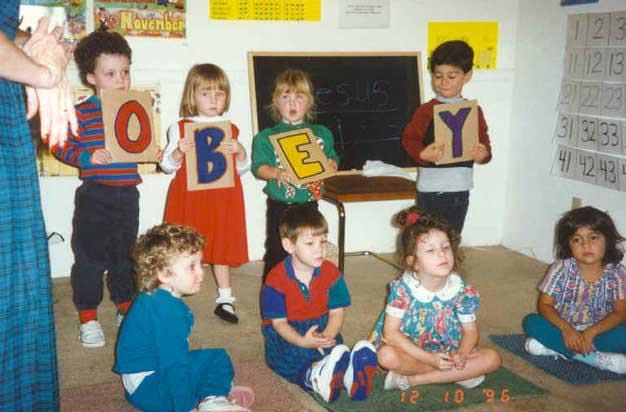
This type of training was extremely effective, and me and all the children internalized it deeply. Often when I tell people about my childhood they say things like “Oh I wouldn’t have stood for that, I would have simply refused to obey.” This is unrealistic. Our parents kept us carefully isolated - from birth - from even witnessing examples of other children being disrespectful, and even the faintest disobedience gets slapped out of you starting as a baby. And if you manage to keep your baby-self’s own defiant will going somehow, it’ll then get beaten out of you by extraordinarily painful spankings once your body has grown large enough to handle them. By the time you’re a conscious being with desires, there’s no fight left in you. You don’t really have much of a concept that you could do something other than what your parents say.
For example: once, when I was eight years old, I’d done something wrong that warranted a spanking. My dad commanded me ‘come here.’ I hesitated, building up my willpower, before complying. He spanked me and let me go as I sobbed. He then said “You hesitated. That’s disobedience - come here to get another one.”
At this point I was in a lot of pain, and the effort it took to voluntarily subject myself to another one was now way more. It took me a few moments before I could force myself to approach again. He spanked me again, let me go, and as I sobbed, he told me again that I had hesitated, that this was disobedience, and that it warranted another.
By this point I was in even more pain, and it took even greater effort to overcome my body’s desire to flee or fight. And so again, there was a few second delay. And so he did it again.
He did again eleven times. And when he told me the twelfth time to approach, something in me completely broke. It didn’t matter that my body was now in overwhelming agony - possibly the greatest pain I’ve experienced in my life - the only way to make it stop was to abandon my will entirely, to become a mindless obedience creature that would walk straight into the fire instantly when commanded. So I did, he spanked me one last time, and then he stopped.
I remember this particular instance well because he reminded me of it a lot, whenever he was unhappy with me. He’d say the phrase “twelve times” as a warning - like “you have a spirit of rebellion. If you don’t shape up, things will get bad around here. Remember - twelve times.” He was proud of it.
So yeah, the training went deep, and it was effective. I had no such thing as a private will; every last bit of resistance had been ferreted out of me, and I had perfect submission even in my parents’ absence. For example, when I was around 9 years old, my paternal grandparents came over for dinner and my mom cooked us all food. When she called us to sit down, I sat down, saw the food, didn’t like it, and quietly wrinkled my nose.
This was disobedience - we weren’t supposed to express ungratefulness for the food. So my parents sent me to bed alone for the rest of the night with no food at all. I was deeply upset and hungry, and cried alone for a long time.
My grandpa, feeling sorry for me, snuck in later with some leftovers and tried to get me to eat them. But, hungry and tearstreaked as I was and even with nobody watching, my parents would never have known - I refused him. Eating the food would have been disobedience. Obeying the word of my parents had been built into my bones.
If a child obeyed consistently, good things happened! They were demonstrating proper submission before the Lord and their parents, they were aligned in their heart, and thus they could be granted freedoms.
We were taught the funnel model:
Everything nice in your life is a privilege - free time, being able to read, or leave the house, or talk to friends, or have a door on your bedroom hinges. Children are to be allocated the amount of privilege that equals their position on the funnel. As a child grows and can handle more moral responsibility, you can allow them more things. But if they rebel against you and God, if their heart is hardened, then this means they are not ready to handle such freedoms, and you must drop them down the funnel until they’re at a level that matches the maturity of their actions. You keep them at that level until their heart gets right with God and they begin to obey - not just in action, but with deep repentance.
Unfortunately, very minor things counted as disobedience and thus warranted punishment. Interrupting a parent when they’re talking, saying ‘no’ without following it up with ‘thank you’, pausing a few seconds before obeying when commanded to do something, etc - both me and all the kids I knew had been spanked for these violations. You had to be very good for a long time to crawl up the funnel.
There was no room for error. Once when I was 6 or 7, my parents put me in a karate lesson. I was a very sensitive, shy kid - “cry when it’s your turn to hit the pinata because everyone else will be looking at you” kind of kid. So in this karate class, I was humiliated to find that it was me and a bunch of toddlers. I thought it was super embarrassing, that everyone would think I was a toddler too. This is my first memory of really attempting to defy my parents; I hid in the bathroom sobbing. My mom said “you have to” and I said “please please don’t make me.” She got my dad to go drive to the karate place and he took me outside and said “If you don’t do this, you can’t ever have piano lessons again.”
They didn’t even particularly care about me doing karate, I hadn’t begged to do it or anything, there was no lesson to be taught besides the fact they just didn’t want to set a precedent that I could subvert a command by being emotional about it. That would be bad incentives, you see.
I’d been playing piano since I was 4 and I loved it. So I forced myself to go out on that floor, burning with shame and tears streaming down my cheeks, and I got to keep the piano lessons. They must have felt a little merciful, though, because they didn’t force me to go back to karate after that.
As I got older, there were more opportunities for rebellion. My entire teenage years were pretty rough downstream of a single mistake: When I was 14, I got in trouble for something and my parents said “you can’t use the computer for two weeks.” So I sneaked back online to tell my friend (on a heavily censored kid’s website) that I got grounded and would be gone for two weeks.
My parents found out I had snuck online behind their backs. This was disobedience, and my punishment was that I was never to talk to that friend ever again.
This was too much for me to bear; I loved my friend. So I would sneak online to talk to her (and made more friends - all of them Christian, all of our conversations G-rated), I’d eventually get caught and plummeted down the funnel, I’d be good for months or years until I climbed back up, they’d catch me talking to my friends again, and I’d plunge back down, etc. This was a horrible rolling cycle that lasted almost rest of my life spent at home.
At one point it got so bad, I was so low on the funnel, that I lost almost all my privileges. I think I was 15 or 16 years old? My parents heaped chores on me all day, wouldn't let me leave the house (except to church), and I couldn’t talk to anyone or read any books or watch television. Any time my parents noticed that I might be having a good time, they yelled at me or put me to work. My dad would randomly stop me any time he passed me, force me to stand and listen to him berate me about my ungratefulness and how I was a sinner who would fail in life. This went on for a long time. Once, I was doing the dishes and something clanked loudly; I then went into an episode of hyperventilating convulsing sobs, slamming my head on the cabinets. My mom tried to touch me but I wouldn’t let her; my dad came in to see what was going on, saw me crying, laughed and walked away. I was allowed to go to bed. That I was allowed to do this was quite significant, because it meant I was allowed to stop doing a chore due to emotional expression. My mom even went and finished the dishes that day.
Still though, they must have figured any further leniency would be allowing me too much power, and none of the rules or my status on the funnel changed.
I ‘rebelled’ by becoming depressed. I stopped all emotional expression, brushing my teeth, showering, changing my clothes, or making eye contact. According to GKGW this was defiance, and so after a few days of this my dad grew irritated at my mood, and commanded me to 'stop moping around, acting like you’re upset.’ He commanded me to be cheerful.
I had to. I was afraid of my parents. In our circles one of the families had ended up chaining their daughter to the bed with nothing but a bible, and let her off the chain to use the restroom. The families gossiped about this with interest, and my parents had a 'shrug, guess that’s what happens if a child really is determined to rebel’ attitude about it. I didn’t know what was below my current position on the funnel, but I genuinely believed it would be something like being chained to a bed, or locked up in a small room.
Maybe if I’d had more fire in me, I would have tried to find out. But with twelve times still ringing in my ears, I smiled and acted joyful. I made eye contact and combed my hair and acted like everything was fine. Even my facial expressions had been taken from me.
I internalized all of this. I believed I was a sinner who was determined to rebel against God by continually violating the rule of my parents. Sure - I experienced anger, but I also thought that was in itself a flaw. I prayed to God to give me gratitude for the punishments. I tried really, really hard. I would lie in bed doing “emotion control”, where I would practice summoning and banishing different emotions at will. I’d think now, happy, and meditate until I was happy. Then I’d practice banishing it rapidly, returning to a neutral state in as few seconds as possible. I wanted it to be instantaneous. I wanted to be in control of my feelings. So many of my feelings were wrong to have. It was so difficult to appreciate the loving correction of my parents.
There’s so much more, I could fill a book with it all (I am filling a book with it all, subscribe for updates!)
This post is mostly a quick overview about the program itself, and less the part about my dad being abusive, which was a separate but quite synergistic element of my upbringing. Growing Kids God’s Way is a brutal program in itself, but easily made much worse in the hands of someone with even the slightest hint of cruelty.
I’m a weird person; a sex worker with odd hygiene habits and extreme opinions on things. I know there’s quite a temptation to view my weirdness as manifestations of trauma.
But I didn’t start sex work until years of failing out of everything else I tried as an adult. I hated working on a factory floor, and I couldn’t afford college (my parents made too much money for me to qualify for financial aid, but refused to co-sign any loans), and I got fired from a photography job because I was so meek and passive. I started sex work because I had no place to live, I was sleeping on a friend’s couch. And I had very normal hygiene habits for many years after leaving home - it was only after meeting a girl with gorgeous hair who told me “oh my secret? I just don’t wash it” when I started experimenting with weird stuff.
So while there are some ways I seem clearly shaped by my childhood - hypersensitivity to authority, for example - most of my weirdness is, I suspect, more as a result of genetics. Both of my parents were adult converts to Christianity - which tends to correlate with more extremism - and my dad in particular is autistic, disagreeable, and has a penchant for absorbing a lot of public hate in service of a righteous cause. I think the genes that caused my parents to try a radical childrearing program on me are likely the same genes I have that cause me to have the courage - compulsion? - to deviate so much from normal society.
I don’t mean to say that my childhood was not traumatic. After I got out and got exposed to people who reacted with horror to stories of my life, I got angry. I got really, really angry. It was debilitating. I had nightmares - usually about my dad trying to kill me, or me trying to kill him. I had burning rage in my chest all the time that felt like a hot coal lodged in my heart. I had compulsive violent imagery where I would mentally practice killing random people - cashiers, taxi drivers - I think out of some desire to be able to protect people I loved, if I had to.
But I got very lucky - after some years of this, I got really into meditating on LSD. After some regular trips, I put on the Fountain soundtrack, took a big dose and went through a rough experiment, and I came out the other side healed. I know it was real because after that day, the nightmares, the rage in my chest, and the violent imagery immediately vanished, and have never returned. Memories of my childhood are still quite sad, and I’m still no-contact with my dad, and sometimes I find bits of me tangled up in old fear, but I’m really, genuinely at peace with it all.
I’ve done way more LSD than most people. Most people take a proper dose of LSD once and go “no more of that for another year at least thank-you.” But I took it, then I took it again, and again, roughly 40 times in the span of 10 months. It was immensely transformative for me, and one of the best decisions I’ve ever made.
But I wonder how much of my affinity for it came from childhood. LSD stripped me of my agency; to survive it I had to submit before it. It reminded me of home. I found that the mental moves I had to do in order to handle LSD were almost exactly the moves I had used under my parents rule. Just give up. Just let go. Just let your sense of self die. You are not here. You are your sensations, the breath in your chest. You are an animal. I remembered being a very young child and realizing that if I just focused my entire attention on the pain, that the pain became my entire reality, and it didn’t hurt anymore. I realized the pain wasn’t in the pain really, but more the contrast between the pain and not-pain.
You bear it because there’s no other choice. I would think I can’t do this, I can’t go on, no body can bear this, I have nothing left to give - but I did. The worst thing happens, and you just… go on living. Your thoughts get taken away from you, and you somehow, in spite of it all, are just… here, again. There is no such thing as being unable to handle it. You are handling it because you are still here.
And so the drug, in some way, was easy. I’d spent my whole life training for it.
My childhood was often very painful, but painful is not special. Children and grown adults across the world have been torturing each other in far worse ways throughout all of human history, and chopping off bits of their psyche to fit into the cracks allowed for them. I am just one of millions, undergoing what has, in the past, been a common experience that often continued unceasing into adulthood. Men have been marched by the legions into the woodchopper of war, women married off to drunkard husbands, children treated like animals. I am of this lineage, and the ability to enact and endure it is built into my bones, much as it is yours.
I do not mean it doesn’t hurt, or that the hurt isn’t vast and important. I just mean that it’s only hurt. It’s just an infinite pool of agony inside you. It belongs there, and thus it it is infinitely tolerable. It is good and correct to have a part of you that is eternally sad; there’s so much to grieve! It’s a part of living. Trying to push it away is disassociation, or denial, or suppression of a true thing that’s meant to be honored.
I ultimately came to terms with my childhood by viewing it as correct. Not in the sense that I would do it to my children, or that it’s ethical by my lights, but rather that it makes sense, it belongs here. My dad was abused when he was a child and probably has NPD; my mom loved us and tried very hard but was misguided in how to show it. It is, then, the correct next step in the storyline for them to have children and raise them in Growing Kids God’s Way. It is, in a sense, inevitable. Someone had to live it, and it just so happens to be me. I’m glad I was the one that bore it, I think compared to most people I was probably pretty good at bearing it. I remember early in childhood deciding that being happy was a choice, that my attitude towards the world was my responsibility, independent of my circumstances. I was determined to make the best of it, so help me god. You might take my will, but you cannot take my delight. My core defiance is my joy in being alive.
And too, all of it was really interesting. Not many people get to go through such a high-effort, systematic stripping of agency. It’s such a novel way to be conscious! Almost nobody else has experienced this! And if they have, then now I am granted the gift of being able to empathize with them, to help them feel less alone. That’s pretty cool.





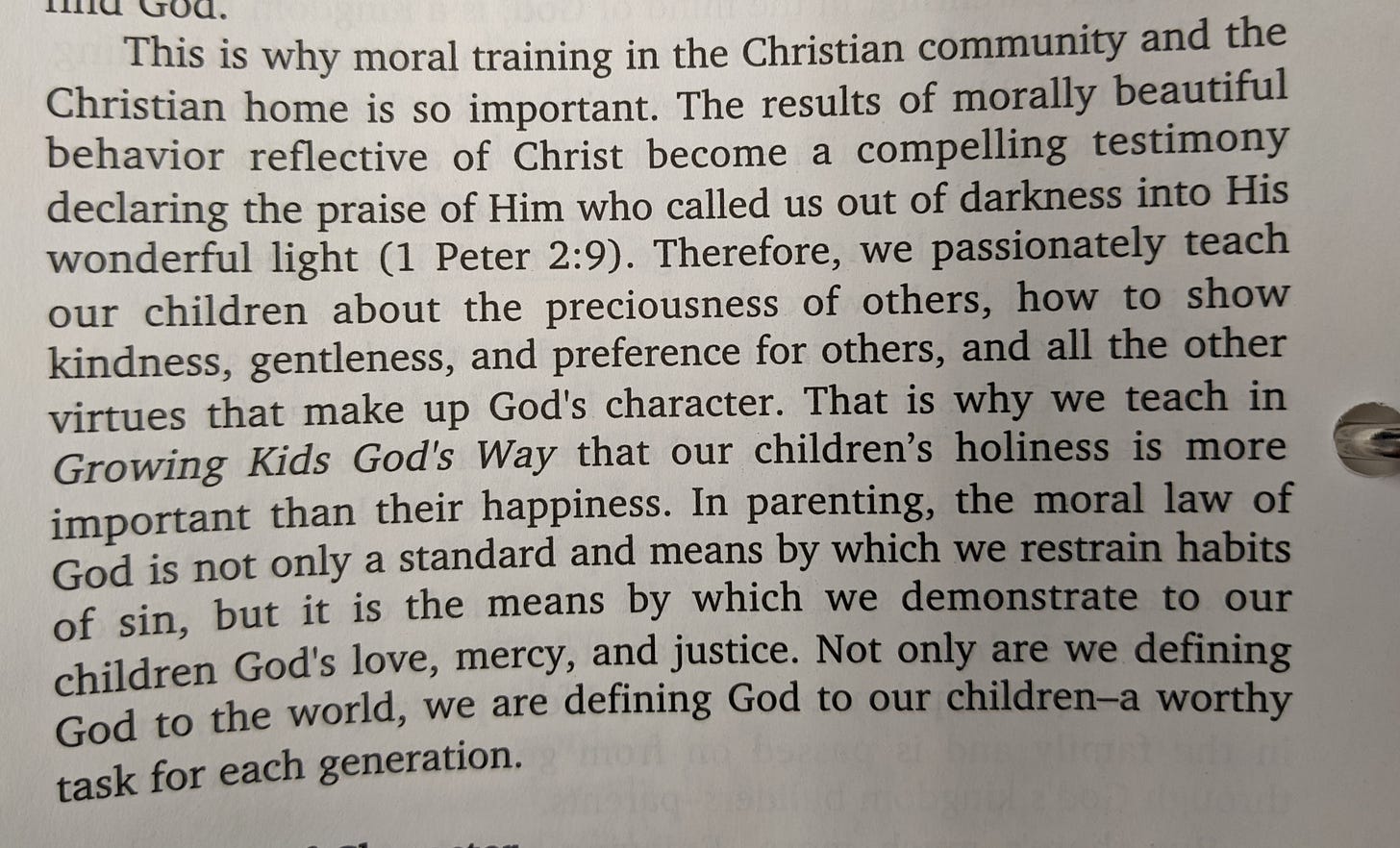
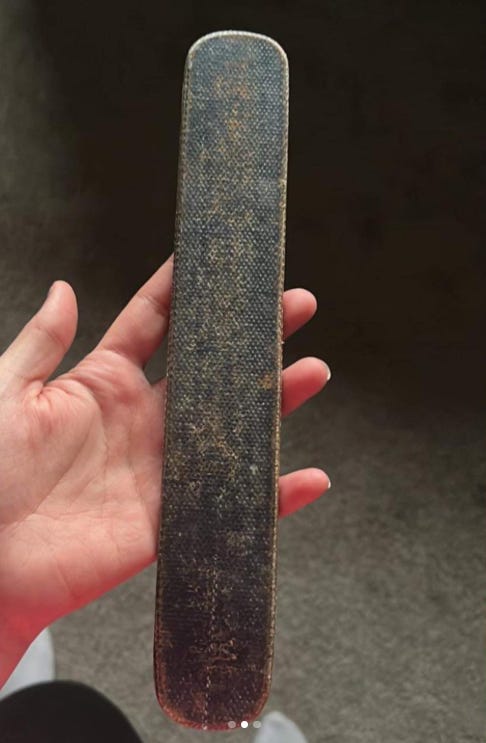

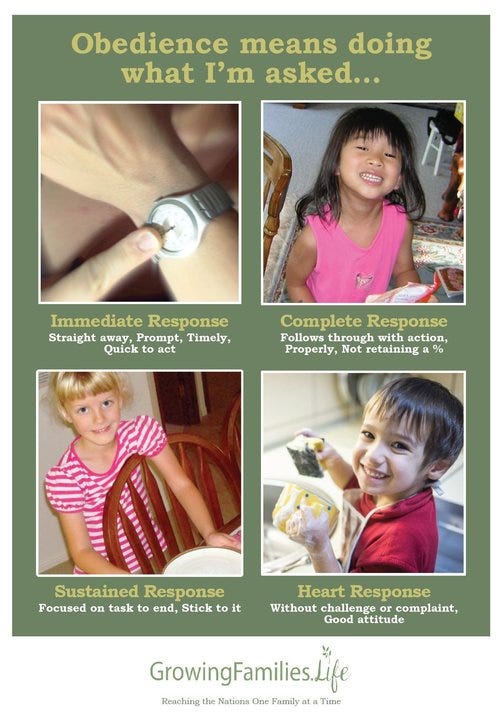


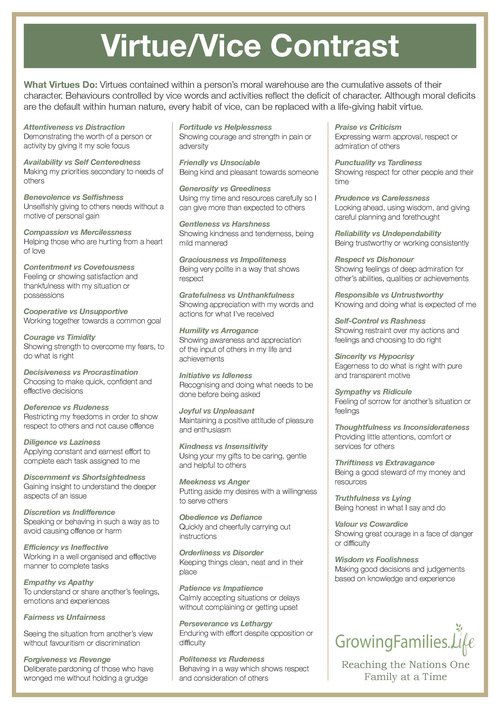

It's super interesting that LSD one-shotted your trauma so effectively. People make such bold claims about how transformative LSD is that it's easy to be dismissive of them, but obviously in your case it did exactly what all the hippies say it does.
Can I ask about how your siblings / other kids in the community turned out? It'd be interesting to see how this affects different people. Does it actually churn out some percentage of god-fearing Christian adults, as it's presumably supposed to do?
This was super interesting to read (and also made me want to go upstairs to give my baby a hug)